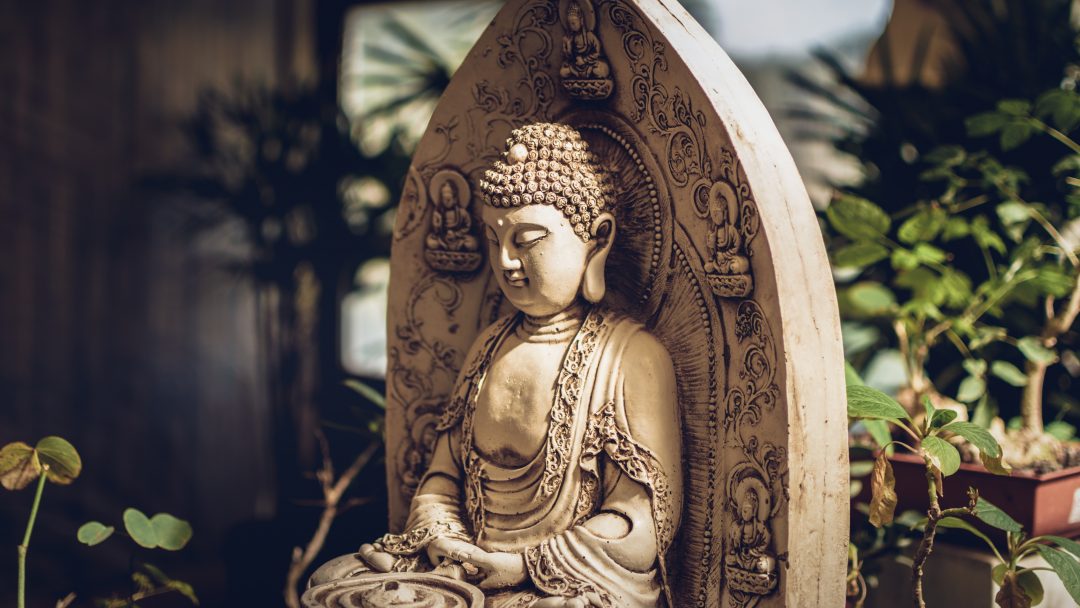Some people swear by meditation and do it daily, others were not able to meditate for even five minutes. Here a 5 science supported wellness reasons to meditate.
Whatever experience of mediation you have, something spawned your curiosity of it and something is also part of your definition of it. Some people refer to this as stillness other calm. Whichever term is being used, there is this universal picture of a meditating Buddha or monk that display a peaceful stillness.
Is the picture of a meditator and the mental state of peaceful stillness related? Does this idea of meditation practitioners have any roots reality? Can such a thing as a peaceful mind even be measured?
The accompanying long list of studies supporting the 5 listed wellness reasons why to meditate surely answer all those questions with a yes. May it also be mentioned here that these studies were mainly conducted on subjects that practiced Theravada Buddhist types of mindfulness meditation, which have a goal of calm and balance. These techniques are not the only meditation techniques out there and for example are a contrast to tantric meditation techniques, which have a goal of exciting.
Which of the following 5 wellness reason to meditate like Buddha, would be of value to you?
Meditation produces relaxation and stress reduction.
Meditation reduces the experience of pain.
Meditation increases attentiveness.
Meditation reduces anxiety.
Meditation improves sleep.
References on:
Stress reduction
Agee J. D., Danoff-Burg S., Grant C. A. Comparing brief stress management courses in a community sample: mindfulness skills and progressive muscle relaxation. Explore. 2009;5(2):104–109. doi: 10.1016/j.explore.2008.12.004.
Chiesa A., Serretti A. Mindfulness-based stress reduction for stress management in healthy people: a review and meta-analysis. The Journal of Alternative and Complementary Medicine. 2009;15(5):593–600. doi: 10.1089/acm.2008.0495.
Grossman P., Niemann L., Schmidt S., Walach H. Mindfulness-based stress reduction and health benefits: a meta-analysis. Journal of Psychosomatic Research. 2004;57(1):35–43. doi: 10.1016/s0022-3999(03)00573-7.
Jain S., Shapiro S. L., Swanick S., et al. A randomized controlled trial of mindfulness meditation versus relaxation training: effects on distress, positive states of mind, rumination, and distraction. Annals of Behavioral Medicine. 2007;33(1):11–21. doi: 10.1207/s15324796abm3301_2.
Pain reduction
Perlman DM, et al. Differential effects on pain intensity and unpleasantness of two meditation practices. Emotion. 2010;10:65–71.
Zeidan F, et al. Mindfulness-Meditation-Based Pain Relief Is Not Mediated by Endogenous Opioids. The Journal of neuroscience : the official journal of the Society for Neuroscience. 2016;36:3391–3397. [PMC free article] [PubMed]
Zeidan F, et al. Brain mechanisms supporting the modulation of pain by mindfulness meditation. The Journal of neuroscience : the official journal of the Society for Neuroscience. 2011;31:5540–5548. [PMC free article] [PubMed]
Zeidan F, et al. Mindfulness Meditation-Based Pain Relief Employs Different Neural Mechanisms Than Placebo and Sham Mindfulness Meditation-Induced Analgesia. The Journal of neuroscience : the official journal of the Society for Neuroscience. 2015;35:15307–15325.
Zeidan F, et al. The effects of brief mindfulness meditation training on experimentally induced pain. The journal of pain : official journal of the American Pain Society. 2010;11:199–209.
Attention increase
Britton W. B., Lindahl J. R., Cahn B. R., Davis J. H., Goldman R. E. Awakening is not a metaphor: the effects of Buddhist meditation practices on basic wakefulness. Annals of the New York Academy of Sciences. 2014;1307(1):64–81. doi: 10.1111/nyas.12279.
MacLean K. A., Ferrer E., Aichele S. R., et al. Intensive meditation training improves perceptual discrimination and sustained attention. Psychological Science. 2010;21(6):829–839. doi: 10.1177/0956797610371339.
Tang Y.-Y., Lu Q., Fan M., Yang Y., Posner M. I. Mechanisms of white matter changes induced by meditation. Proceedings of the National Academy of Sciences of the United States of America. 2012;109(26):10570–10574. doi: 10.1073/pnas.1207817109.
Anxiety reduction
Chen, K. W., Berger, C. C., Manheimer, E., Forde, D., Magidson, J., Dachman, L., & Lejuez, C. W. (2012). Meditative therapies for reducing anxiety: a systematic review and meta-analysis of randomized controlled trials. Depression and anxiety, 29(7), 545-62.
Tacón AM, McComb J, Caldera Y, Randolph P. Mindfulness meditation, anxiety reduction, and heart disease: A pilot study. Fam Community Health. 2003;26:25.
Zeidan, F., Martucci, K. T., Kraft, R. A., McHaffie, J. G., & Coghill, R. C. (2013). Neural correlates of mindfulness meditation-related anxiety relief. Social cognitive and affective neuroscience, 9(6), 751-9.
Sleep improvement
Black, D. S., O’Reilly, G. A., Olmstead, R., Breen, E. C., & Irwin, M. R. (2015). Mindfulness meditation and improvement in sleep quality and daytime impairment among older adults with sleep disturbances: a randomized clinical trial. JAMA internal medicine, 175(4), 494-501.
Dentico, D., Ferrarelli, F., Riedner, B. A., Smith, R., Zennig, C., Lutz, A., Tononi, G., … Davidson, R. J. (2016). Short Meditation Trainings Enhance Non-REM Sleep Low-Frequency Oscillations. PloS one, 11(2), e0148961. doi:10.1371/journal.pone.0148961
Ong, J. C., Manber, R., Segal, Z., Xia, Y., Shapiro, S., & Wyatt, J. K. (2014). A randomized controlled trial of mindfulness meditation for chronic insomnia. Sleep, 37(9), 1553-63. doi:10.5665/sleep.4010
Cover photo by Jose Luis Sanchez Pereyra on Unsplash https://unsplash.com/photos/U6HOr6-CPSA




